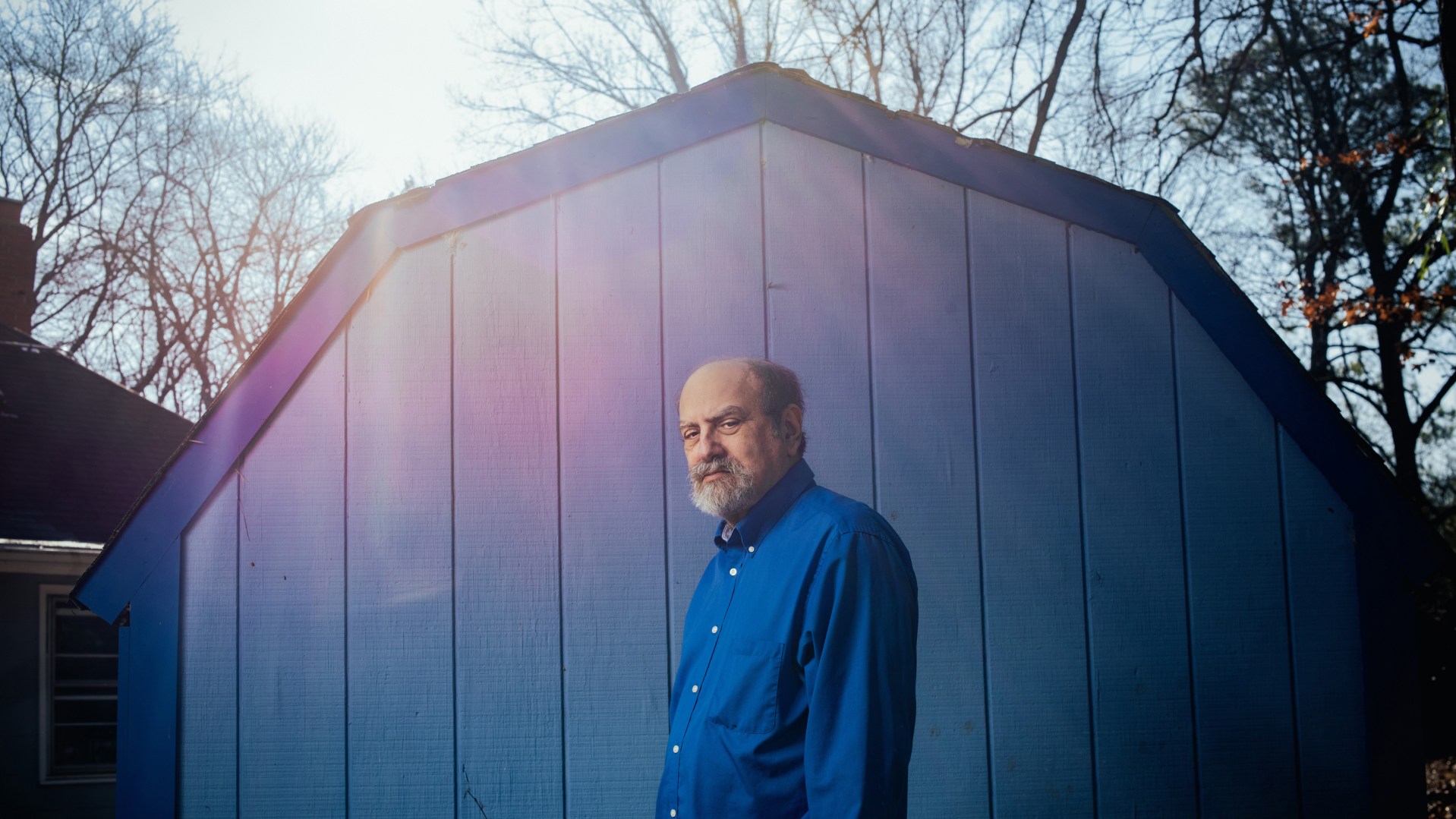I had an unusual childhood for an American. Members of my extended family were union organizers and left-wing radicals, and my parents had even been members of the American Communist Party. My indoctrination in the dogmas of communism and atheism was deep and long lasting. At the same time, my father gave me a love of science and reason, and he taught me the importance of asking questions. These gifts, along with my training in scientific thought and research, eventually cracked open the prison cell that held my soul captive during those early years.
Breaking free was a slow process, akin to chipping away at a dungeon door with a dull spoon. Early on in life, my curiosity led me to ask questions. I saw contradictions in some of what I had been taught. If humans were a blind product of evolutionary chance, with no special purpose or significance, then how could the stated goals of socialism—to advance human dignity and value—make sense? And if religion, particularly Christianity, was really such a terrible historical evil, then why were so many Christian clergy members involved in the civil rights movement?
As I studied science and began my research career in biochemistry and molecular biology, I formed a passionate attachment to a life of knowledge rooted in the scientific worldview. I found comfort and joy in the beauty, complexity, and wisdom of the scientific description of reality. But I also began wondering whether there might be something more to human existence than science and pure reason.
Surprising Discoveries
At this point, the question of faith was off the table. I knew that evolution was true and the Bible (which I hadn’t actually read) was false. I knew that a supernatural god living in the sky was a fairy tale. I knew that science held the keys to unlock all mysteries. Or did it?
I was disturbed to learn that, according to science, some things are actually unknowable. It is impossible to know, for instance, the position and speed of an electron simultaneously. This is a critical feature of quantum mechanics, even though it makes little rational sense. If the uncertainty principle is true (and it must be, since so much modern technology is based on it), then how valid is the idea of a purely deterministic and predictable world?
I also began to contemplate other questions. Where did the universe come from? How did life begin? What does it mean to be a human being? What is the source of our creativity—of art, poetry, music, and humor? Perhaps, I thought, science cannot tell us everything.
Now I was beginning to seriously wonder about the whole religion thing. I met Christians who were smart and scientifically minded, and for the first time I attended a church service. I was surprised at what I found. Nobody glared at me with suspicion, and I heard no thundering condemnation of sinners. The pastor spoke about the power of love. The people next to me shook my hand and wished me peace. It was all quite beautiful, and I decided to return.
Then I read the Gospels and had another shock: I found them beautiful and inspiring. So far as I could tell, they carried the ring of truth. And the Book of Acts struck me as actual history, not at all like a fictional account concocted to enslave the masses—the kind of reading my Marxist upbringing would have conditioned me to affirm.
The door to my prison cell was swinging open, and I stood there gazing out onto a new world, the world of faith. Yet I was afraid to fully leave. Suppose I was being fooled, misled into a trap? I remained stuck in that place of indecision for several years. And then the Holy Spirit pulled me over the threshold.
It happened one day while I was traveling alone on the Pennsylvania Turnpike in the rural middle part of the state, with a long way to go. Turning the radio on, I heard the unmistakable voice of an evangelical Christian preacher, the kind I used to mock and avoid. But this preacher was really good. I have no idea what he was saying, but his voice and inflection were mesmerizing and I listened for a few minutes before turning the radio off. Driving in silence for a while, I began wondering how I would sound if I ever tried preaching—after all, I always liked to talk. I laughed a bit, thinking about what I could possibly say. The first thing that came to my mind was something about science—how, if there were a God, he might have used science to create the world.
And then something happened. I felt a chill up and down my spine and could hear myself speaking in my mind—preaching, in fact. I could see an audience in front of me, people in an outdoor stadium, dressed in summer clothing. I pulled the car over to the right lane and slowed down. It was not a vision exactly, but it was intense. I knew I wasn’t making the words up—I was listening just as much as the audience.
I talked about knowing that Jesus loves me. With a voice full of passionate emotion, I assured the crowd that whatever their sins might be, they were no worse than my own, and that because of Christ’s sacrifice on the cross we could all be saved. I explained that God’s love is more powerful than any other kind and that anyone can have it without deserving it.
At some point during this experience, I had pulled over onto the shoulder of the road, where I sat behind the wheel crying for some time. I had never considered the things “I” had been saying. Some of the concepts were unfamiliar. The only explanation I could fathom was that the Holy Spirit had entered into my life in dramatic fashion. “Thank you, Lord,” I said out loud in between sobs. “I believe, and I am saved. Thank you, Lord Jesus Christ.”
Joy and Release
When I recovered my composure, I was aware of a great feeling of joy and release. I had no more doubts, no trace of hesitation—I had crossed over, stepping over the ruins of my prison cell into my new life of faith. From that day onward, my life has been devoted to the joyful service of our Lord.
Today, I am an active member of my church and have served as lay leader for several years. I am a fellow of the American Scientific Affiliation, the largest organization of Christians in the sciences, and the vice president of its metropolitan Washington, DC, chapter. I also serve as editor in chief of the ASA’s online magazine God and Nature. I assist my wife, who is codirector of a local charity that distributes food to the needy. I am an active online evangelist.
Along the way, I made many discoveries. I learned about the power of the Bible as a guide from God to the central questions of our existence. I learned that the true purpose of science is to describe how things are, not to engage in misplaced speculation about why the world is the way it is. I learned that modern atheist taunts about the purposelessness and meaninglessness of the universe and our own existence are not only false but destructive. Most importantly, I learned that nothing I have learned came through my own merit, but only from the grace of our Lord, whose love and mercy are beyond understanding.
Sy Garte is a biochemist who has taught at New York University, the University of Pittsburgh, and Rutgers University. He is the author of The Works of His Hands: A Scientist’s Journey from Atheism to Faith (Kregel Publications).











